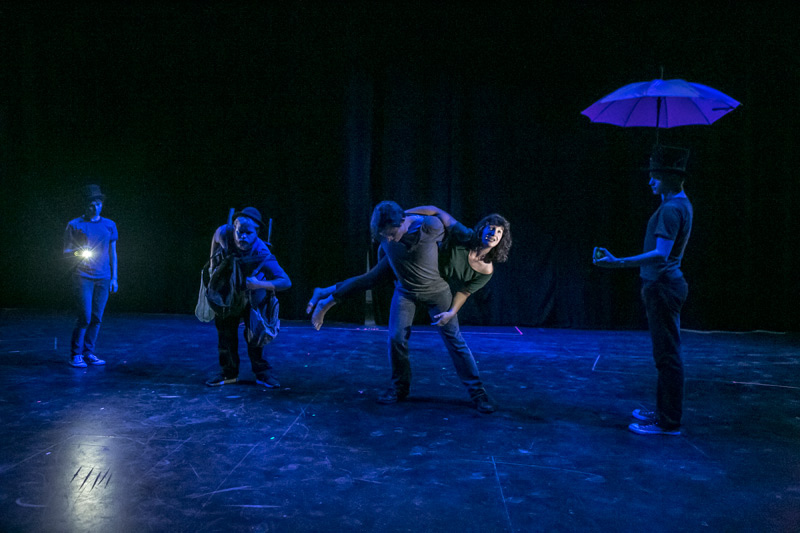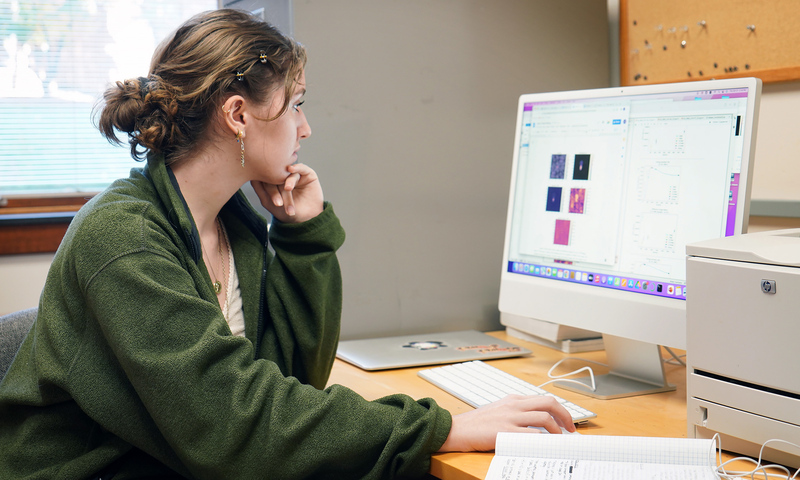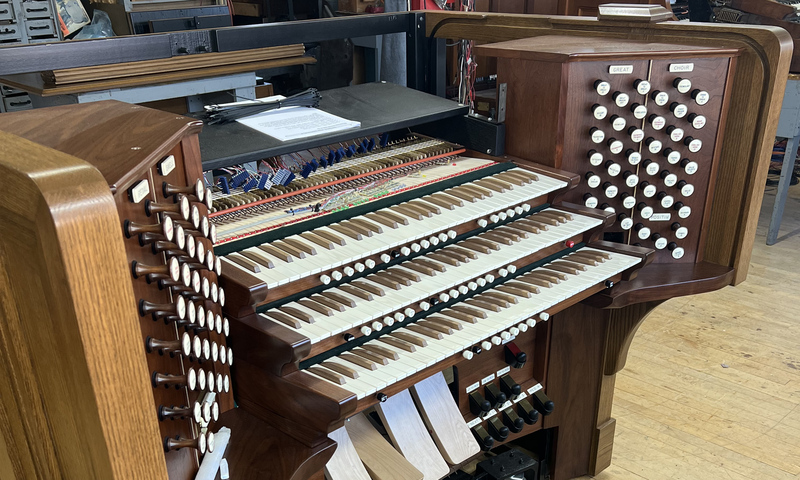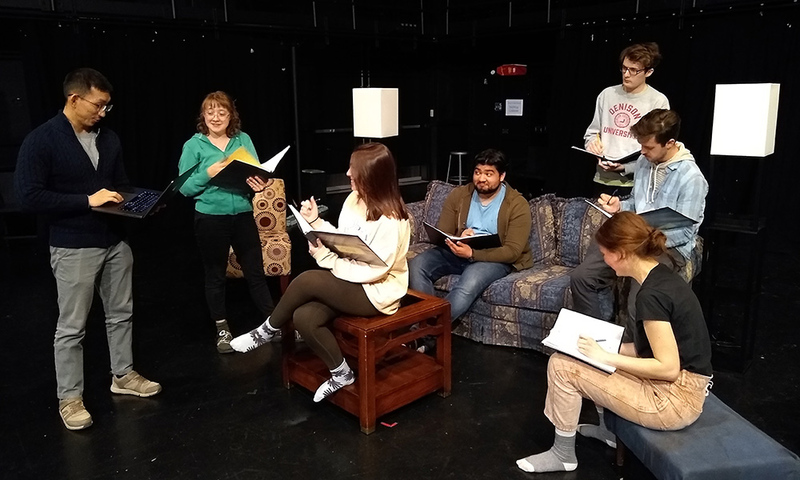Emily Schuman’s summer scholar research resulted in a performance at the Philadelphia Fringe Festival — and phenomenal reviews.
Inspired by the play “Blood Wedding” by Garcia Larca, the class of 2013 theatre major researched absurdist Spanish theatre as a summer scholar. When she discovered “Fando y Lis” by Fernando Arrabal, she read the entire play in one night and knew it was exactly what she wanted to work with.
“No other Spanish play spoke to me as much as “Fando y Lis,” said Schuman. “It was exactly what I wanted, a broken love story with a small number of characters, that jumped from moment to moment and from emotion to emotion.”
Schuman discovered an English translation of the play, but she wanted to work from the original. For several weeks, she translated the original play from Spanish to English, figuring out idioms and phrases with the help of Spanish Professor Dosinda Alvite.
“I pretty much kept it directly translated, because it sounded so choppy and cool when it wasn’t exactly adapted to English conversation, which I liked,” she said.
Professor Alvite described Schuman as passionate, ambitious and unfazed.
“To be a well-rounded person, it is important to connect with other cultures and perceptions of reality. In this project, she not only translated the language, she translated the social realities that the play criticizes,” Alvite said. “The style of the author is very distinctive and risky to put in front of an American audience. People go to the theater to be entertained, not challenged.”
Theatre Professor Mark Evans Bryan ’96 aided Schuman with the adaptation of the play, inspired her to add monologues, and expanded her vision of how she wanted to produce the play. One major adaptation included the use of a mannequin to represent the character Lis, an experiment in the performance of stage violence.
“The Fringe Festival helped me to revisit that artistic choice again, and it became even better. It was hard get the cast to understand it at first; they really challenged me to articulate it more clearly,” said Schuman, who portrayed Lis in addition to the character’s representation by a mannequin.
The story of “Fando y Lis” is not plot driven; rather, it is existential and “up in the head” as Schuman describes it.
“It really connects with actual relationships. It is relative to the human condition and how people relate to each other on the most basic and absurdist level,” she said.
The production of Schuman’s adaptation at the Shubin Theatre in Philadelphia received impressive reviews. Critic Dotun Akintoye from Philadelphia CityPaper wrote, “Every decision she has made is proof of how well she possesses the work, and how willingly she has allowed it possess her…Schuman has brilliantly constructed a play of circles.”
“There is no better translator than the one who understands the reality of the other, respects it, and makes it into a dialogue with the reality of the audience,” Alvite said.
“Her exploration of Arrabal’s ‘panic theatre’ in her translation/adaptation of “Fando y Lis” is among the most extraordinary pieces of theatre I’ve seen during my time as a university professor,” said Bryan. “Unnerving and violent and, alternately, remarkably sweet, it was genuinely mature work, rooted in movement and metaphor.”
In response to these reviews Schuman said, “It was amazing. It was the first step into something that I really love and want to do for the rest of my life. Taking control of that was very powerful.”
Prior to this production, Schuman worked at the Arden Theatre Company where she learned how to raise money for shows, how to write grants, and box office work. Schuman is currently the props master for Pig Iron Theatre Company’s workshop as well as an actor in “Misalliance” at the IRC Theatre in Philadelphia.







